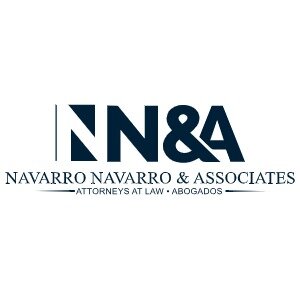Best Landlord & Tenant Lawyers in Panama City
Share your needs with us, get contacted by law firms.
Free. Takes 2 min.
Free Guide to Hiring a Real Estate Lawyer
List of the best lawyers in Panama City, Panama
About Landlord & Tenant Law in Panama City, Panama
Landlord and tenant laws in Panama City, Panama, are designed to regulate the relationship between residential landlords and their tenants. These regulations aim to protect the rights of both parties and ensure fair practices in the rental market. Contracts are often written in Spanish, and it's crucial for both parties to understand the terms to avoid any misunderstandings. The Civil Code of Panama governs these relationships, stipulating the rights, duties, and obligations of landlords and tenants alike.
Why You May Need a Lawyer
There are numerous situations where individuals may benefit from legal advice in landlord and tenant matters. If you're a landlord, you might require a lawyer to draft or review lease agreements, handle tenant disputes, or manage evictions. Tenants may need legal assistance to ensure their rights are protected under their lease agreement, resolve conflicts with their landlord, or contest unlawful evictions. Seeking a lawyer's counsel can provide clarity and guidance, preventing potential legal complications or financial losses.
Local Laws Overview
In Panama City, the rental relationships are heavily influenced by both the Civil Code and a series of rental regulations. Key aspects include:
- Lease Agreements: These must be in writing if they extend longer than six years.
- Security Deposits: Security deposits are regulated to ensure landlords do not overcharge tenants.
- Rent Control: Rent increases need to comply with statutory limitations and guidelines established by the government.
- Eviction Process: Evictions must follow strict legal procedures, requiring court orders in many cases.
- Maintenance and Repairs: Landlords are generally responsible for maintaining the property and making necessary repairs.
Frequently Asked Questions
What rights do tenants have in Panama City?
Tenants have the right to a habitable property, privacy, and protection from illegal eviction. They also have the right to be informed of any significant changes to the rental terms.
Can a landlord increase rent anytime during the lease?
No, landlords must abide by the terms specified in the lease regarding rent increases, and such changes often require notice and, in some cases, approval by rental regulations.
Are oral lease agreements legally binding in Panama City?
Oral agreements may be harder to enforce and typically apply to short-term arrangements. Written agreements are recommended for clarity and legal enforceability.
What steps should a tenant take if the landlord refuses to make necessary repairs?
Tenants should notify the landlord in writing, specifying the needed repairs. If the landlord fails to respond, legal recourse through a lawyer or pertinent authorities can be sought.
What documents should I keep as a tenant?
It is essential to keep copies of the lease agreement, rent receipts, written communications with the landlord, and any official notices received.
Can tenants withhold rent if repairs are not made?
Withholding rent is not advisable without legal consultation, as it could breach the lease. Legal alternatives or negotiations with the landlord should be sought first.
How much notice is required to terminate a lease?
Notice periods can vary depending on the lease terms. Generally, a 30-day notice is standard; however, it's crucial to check the specific lease agreement.
Are there laws protecting tenants from discrimination?
Yes, tenants are protected against discrimination based on race, gender, nationality, or any other protected characteristic under Panamanian law.
How long does the eviction process take?
The eviction process can be lengthy, often taking several months, as it requires adherence to formal legal procedures and possibly going through the court system.
What happens if a landlord and tenant cannot agree on a dispute?
If a dispute cannot be resolved amicably, legal mediation or court intervention may be necessary. This is where legal representation becomes critical.
Additional Resources
For further assistance, consider consulting the following resources:
- Ministry of Housing and Territorial Planning (MIVIOT) for regulations and guidelines.
- Local legal aid organizations that offer advice and representation.
- The Judiciary of Panama for information on legal proceedings regarding landlord and tenant issues.
Next Steps
If you require legal assistance regarding landlord and tenant matters, it's advisable to consult with a specialized lawyer who can provide personalized advice based on your situation. Start by gathering all relevant documents, such as your lease agreement and any correspondence related to the issue. Consider scheduling a consultation with a local lawyer to discuss your concerns and decide on an appropriate course of action. Legal experts in Panama City will have the knowledge and experience to guide you through the complexities of local laws and ensure your rights are protected.
Lawzana helps you find the best lawyers and law firms in Panama City through a curated and pre-screened list of qualified legal professionals. Our platform offers rankings and detailed profiles of attorneys and law firms, allowing you to compare based on practice areas, including Landlord & Tenant, experience, and client feedback.
Each profile includes a description of the firm's areas of practice, client reviews, team members and partners, year of establishment, spoken languages, office locations, contact information, social media presence, and any published articles or resources. Most firms on our platform speak English and are experienced in both local and international legal matters.
Get a quote from top-rated law firms in Panama City, Panama — quickly, securely, and without unnecessary hassle.
Disclaimer:
The information provided on this page is for general informational purposes only and does not constitute legal advice. While we strive to ensure the accuracy and relevance of the content, legal information may change over time, and interpretations of the law can vary. You should always consult with a qualified legal professional for advice specific to your situation.
We disclaim all liability for actions taken or not taken based on the content of this page. If you believe any information is incorrect or outdated, please contact us, and we will review and update it where appropriate.

















